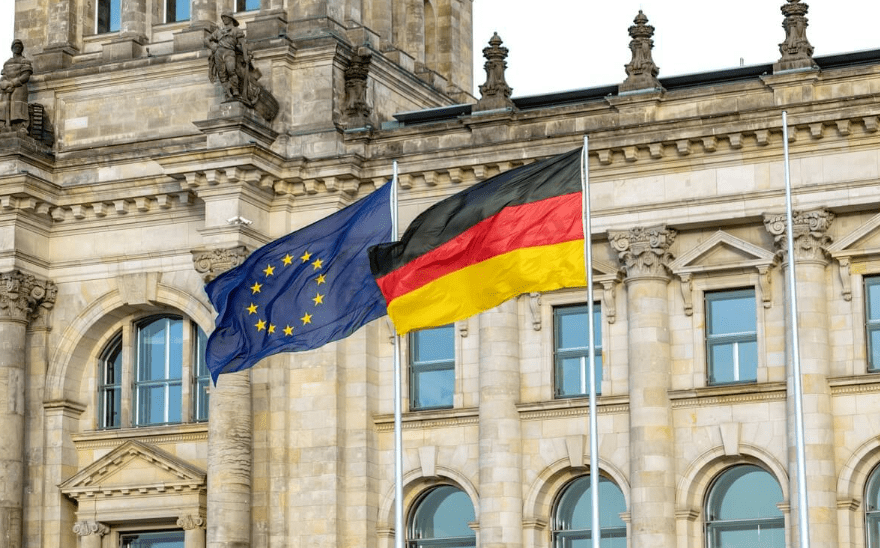In 2024, Germany’s energy storage regulations focus on enhancing the integration of renewable energy sources into the grid. Key policies aim to support the deployment of battery storage systems, improve grid stability, and promote energy independence. These regulations are crucial for achieving Germany’s climate goals and ensuring a reliable energy supply.
Overview of Energy Storage Regulations in Germany
Germany is at the forefront of energy transition, known as the Energiewende. The country has implemented various regulations and policies to facilitate energy storage solutions, which are essential for balancing supply and demand in an increasingly renewable-based energy system. This comprehensive guide outlines the key regulations and policies affecting energy storage in Germany for 2024.
1. Legislative Framework
The German government has established a robust legislative framework to promote energy storage. Key components include:
- Renewable Energy Sources Act (EEG): This act supports renewable energy production and includes provisions for energy storage systems to enhance grid stability.
- Energy Industry Act (EnWG): This legislation regulates the operation of energy storage facilities, ensuring they comply with safety and operational standards.
2. Financial Incentives for Energy Storage
To encourage investment in energy storage technologies, the German government offers various financial incentives:
- Subsidies and Grants: Homeowners and businesses can receive financial support for installing battery storage systems alongside renewable energy sources, such as solar panels.
- Feed-in Tariffs: Energy storage systems that contribute to the grid may benefit from feed-in tariffs, providing a stable revenue stream for operators.
3. Grid Integration Policies
Effective integration of energy storage systems into the existing grid is critical for their success. Key policies include:
- Grid Access Regulations: These regulations ensure that energy storage systems can connect to the grid easily and participate in balancing services.
- Market Participation: Energy storage operators are allowed to participate in electricity markets, providing ancillary services such as frequency regulation.
Impact of Energy Storage Policies on Renewable Energy
The policies surrounding energy storage have a profound impact on Germany’s renewable energy landscape:
1. Enhanced Grid Stability
Energy storage systems play a vital role in stabilizing the grid by storing excess energy generated during peak production times and releasing it during periods of high demand. This capability helps mitigate fluctuations in renewable energy generation.
2. Increased Renewable Energy Deployment
By providing reliable backup power, energy storage encourages more extensive adoption of renewable technologies. Homeowners and businesses are more likely to invest in solar panels if they can store excess energy for later use.
3. Economic Growth and Job Creation
The growth of the energy storage sector is expected to create new jobs and stimulate economic development. As demand for advanced battery technologies increases, so will opportunities for innovation and manufacturing within Germany.
Latest News
- The German government has announced new funding initiatives aimed at accelerating the deployment of energy storage solutions across the country.
- Recent studies indicate that integrating larger-scale battery systems into the grid could significantly reduce reliance on fossil fuels.
- Industry experts predict that advancements in battery technology will lead to lower costs and increased efficiency for residential and commercial applications.
Redway Expert Comment
As experts in Lithium LiFePO4 battery technology at Redway Battery, we recognize the critical role that effective energy storage solutions play in Germany’s transition to renewable energy. The 2024 regulations not only support innovation but also align with our commitment to providing high-quality battery solutions that enhance sustainability. We believe that our advanced battery technology will be instrumental in achieving Germany’s ambitious climate goals.”
Conclusion
Germany’s energy storage regulations and policies for 2024 represent a significant step toward achieving a sustainable and reliable energy system. By promoting financial incentives, ensuring effective grid integration, and enhancing support for renewable technologies, these initiatives position Germany as a leader in global efforts toward clean energy transition. As we move forward, collaboration between government, industry, and technology providers will be essential to realize these goals effectively.
FAQs
What are the latest developments in Germany’s energy storage regulations?
Germany is advancing its energy storage regulations as part of the broader “Easter Package,” which aims to accelerate the integration of renewable energy. The package emphasizes the importance of energy storage systems to balance supply and demand, streamline permitting processes, and enhance grid stability, encouraging investments in technologies like batteries, including LiFePO4.
How does the new policy impact the adoption of LiFePO4 batteries in Germany?
The Easter Package supports the adoption of LiFePO4 batteries by simplifying regulatory frameworks and promoting energy storage solutions as essential for renewable integration. Increased investment in renewable energy projects and streamlined approval processes will likely lead to greater demand for efficient and safe battery technologies like LiFePO4 for residential and commercial use.
What are the main points of the Germany EEG Easter Package?
The EEG Easter Package sets a target for 80% of electricity consumption from renewables by 2030, aiming for near-total renewable sourcing by 2035. It increases auction volumes for wind and solar installations, defines renewable energy as a public interest matter to expedite permitting, and removes the EEG levy funded through federal budgets instead of consumer electricity prices.
How will the Germany EEG Easter Package influence the renewable energy sector?
The Easter Package is expected to significantly boost the renewable energy sector by facilitating rapid expansion through increased auction volumes and streamlined processes. By prioritizing renewables as a matter of public interest, it aims to reduce bureaucratic delays, thereby accelerating project development and enhancing Germany’s energy independence.
What are the expected economic impacts of the Germany EEG Easter Package?
The economic impacts include job creation in the renewable sector, with estimates suggesting over 400,000 new jobs by 2032. The removal of the EEG levy is expected to lower electricity costs for consumers while promoting investment in green technologies. Overall, the package aims to stimulate economic growth through significant investments in renewable infrastructure.




